The Nutrients to View list in Genesis R&D Classic & Food Processor dictates what nutrients and nutrient components you will see in your reports and on the Nutrients page of your new/edit Recipe window and the Nutrients page of your new/edit Ingredient window. And there are a lot of nutrients available — nearly 180. This blog will cover a few of the Nutrients to View options you have, including how to list them in alphabetical order.
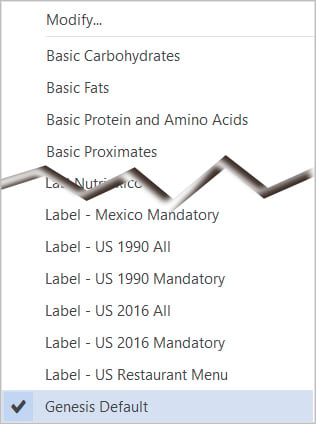
Genesis R&D Food and Food Processor come pre-populated with a variety of nutrient lists, making it easy to select which one works best for you.
For example, in the Genesis R&D Food program, the default lists include mandatory label nutrients, DRIs, carbs only, fats only, and others. Genesis Default is the default nutrient list, which contains about 60 of the most common nutrients.
You can change the default to one of the other available lists by choosing Nutrients to View from the Home ribbon and selecting one of the available options.
Creating Your Own Nutrient List
There may be times when you will want a customized list of nutrients. To do so:
- From the Home tab on the ribbon, choose the Nutrients to View button.
- Select Modify.
- Click New.
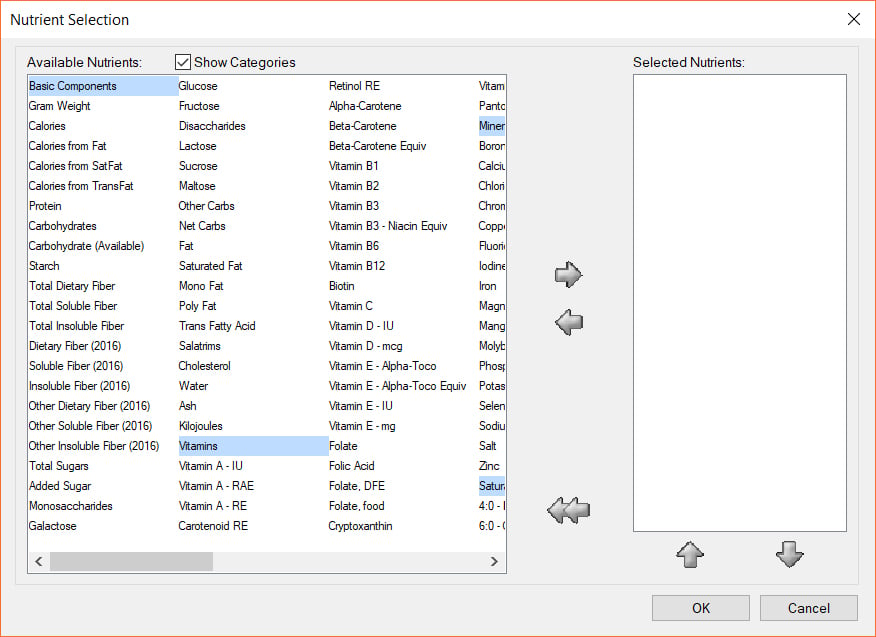
- From the left pane (Available Nutrients), highlight the nutrients you want to include and click the right arrow. (Note: Use the Shift and Ctrl keys on your keyboard to select more than one at a time.) You can also double-click to add a nutrient to the Selected Nutrients list.
- The nutrients will appear in the right pane (Selected Nutrients) in order, under the category headings.
- Move a nutrient higher or lower in the list (within its category) by highlighting it and using the up and down arrows.
- Click OK.
- Click Save As and name your list. You will now be able to select it under Nutrients to View and your reports will show the nutrient breakdown for these nutrients only.
Alphabetize Your List
You can also create a nutrient list that displays the nutrients alphabetically, instead of by category.
- Again, choose Nutrients to View from the Home tab on the ribbon.
- Select Modify.
- Click New.
- Uncheck “Show Categories.”
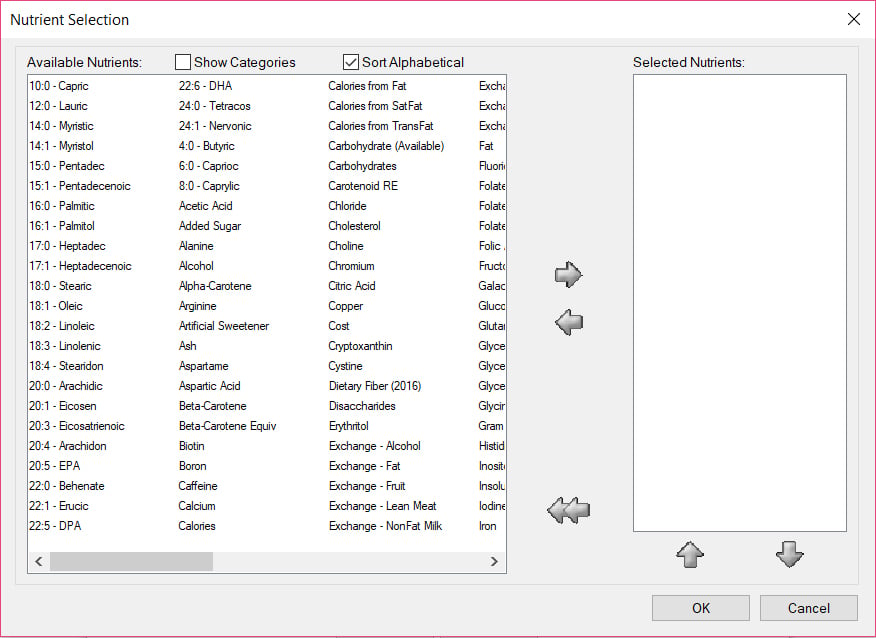
- The nutrients are now listed alphabetically. Continue to create the list in the same manner as shown above. (Note: When the nutrients initially appear in the Selected Nutrients pane, they will be listed alphabetically. You can move the nutrients up and down using the arrow keys and, in this case, their placement is not dictated by their categories.)
- When you’re satisfied, click OK.
- Click Save As and name your list. You will now be able to select it under Nutrients to View and your reports will show the nutrient breakdown for these nutrients only, listed in alphabetical order.
Modify An Existing List
If a list is almost what you need, but you need to change a few nutrients, you can modify that list. A good example of this is Label – US 2016 Mandatory. The nutrients are listed by category and not in label order. You can modify this list to show the nutrients in label order.
- On the Nutrients to View menu, make sure Label – US 2016 Mandatory is checked.
- Select Modify from the Nutrients to View menu.
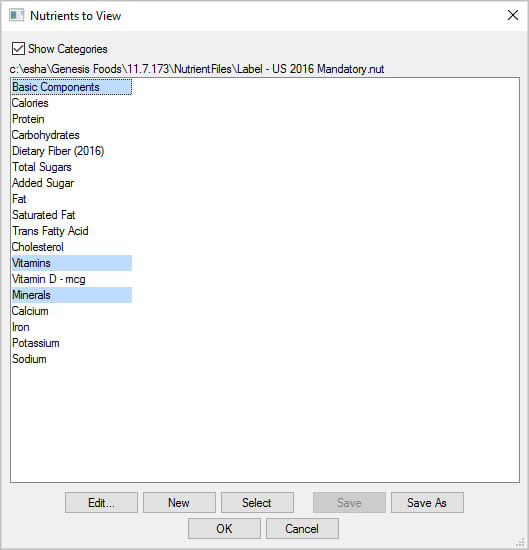
- Uncheck “Show Categories”
- Click Edit
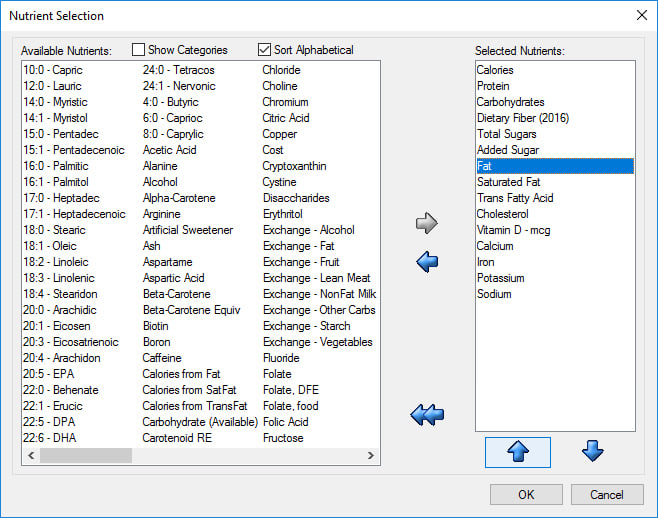
- In the right-hand pane, highlight a nutrient and drag it or use the arrow keys to move it up and down the list.
- Continue doing the same with other nutrients until the list is in the order you want.
- Click OK.
- Click Save As. We highly recommend that you save this list with a unique name and not override the existing list.
- Name your list and click OK.
- Now your nutrients will appear in that order in reports and on the Recipe Information or Ingredient Information Nutrient screens.
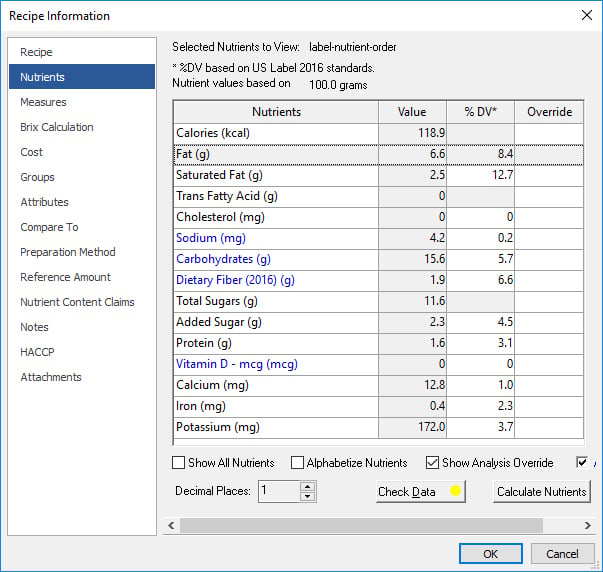
Other posts you might be interested in
View All Posts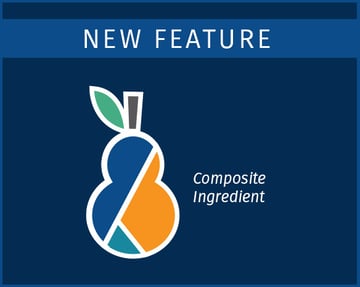
Food Labeling
39 min read
| May 16, 2018
Using the Composite Ingredient™ Feature in Genesis R&D Foods
Read More
Food Labeling
3 min read
| February 23, 2017
Health Canada’s Nutrition Facts Table Nutrient Changes Part 1
Read More
Food Labeling
4 min read
| December 14, 2016

